Missile that downed MH17 plane came from Russian
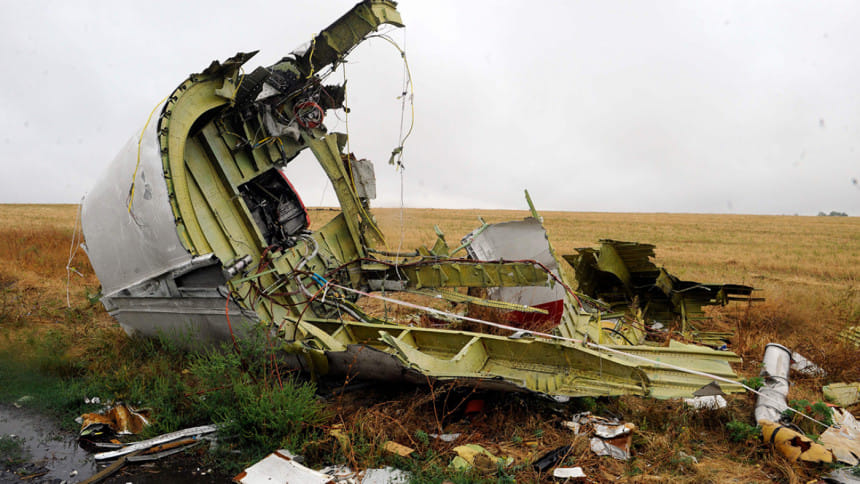
Investigators probing the 2014 downing of flight MH17 said today for the first time that the missile which brought down the plane over eastern Ukraine originated from a Russian military brigade.
But Moscow quickly rejected the accusation, saying no such weapon had ever crossed the Russian-Ukrainian border.
The Joint Investigation Team "has come to the conclusion that the BUK-TELAR that shot down MH17 came from 53rd Anti-aircraft Missile Brigade based in Kursk in Russia," top Dutch investigator Wilbert Paulissen said.
He told reporters gathered for a press conference in Utrecht that "the 53rd Brigade forms part of the Russian armed forces".
The Malaysian Airlines flight on a Boeing 777 was blown out of the sky over conflict-torn eastern Ukraine on July 17, 2014 while en route from Amsterdam to Kuala Lumpur.
All 298 passengers and crew, most of them Dutch, were killed in the disaster. In all there were 17 nationalities on board including Australians, Britons, Malaysians and Indonesians.
The investigators had previously concluded that the plane was hit by a Russian-made BUK missile brought in from Russia and fired from territory in Ukraine held by Moscow-backed rebels. But they had stopped short of directly saying who pulled the trigger.
Now the team has painstakingly recreated the route taken by the missile convoy from Kursk towards the border into Ukraine using videos and photos.
Prosecutions?
Ukranian President Petro Poroshenko said there is "every reason to expect that in the near future the Dutch prosecutor's office will be able to file a prosecution against the individuals involved in shooting down the plane".
"Evil will be punished and justice will be restored," he said.
A large convoy of some 50 vehicles including six BUK-TELAR missile systems left the Kursk base on June 23, 2014, the investigators said.
The missile system that shot down flight MH17 was then filmed several times on July 17 and 18 in eastern Ukraine as it was transported on a low flatbed truck-and-trailer.
Paulissen said the team had "ascertained that the BUK-TELAR has a number of unique characteristics. These characteristics as such served as a type of fingerprint for the missile".
Moscow has repeatedly denied any involvement in the disaster, putting the blame instead on Kiev.
"Not a single anti-aircraft missile system from the Russian Federation has ever crossed the Russia-Ukraine border," the defence ministry said in a statement carried by news agencies.
The probe being led by the Netherlands is focusing on some 100 people suspected of having played an "active role" in the incident, but investigators have not yet publicly named any suspects.
They have identified two people, who go by the aliases Orion and Delfin, as top suspects after obtaining their wire-tapped conversations before and after the plane was shot out of the sky.
Chief investigator Fred Westerbeke said Thursday the probe was now in its "last phase" but added there was "still work to be done".
Over the past years "we've gained a lot of proof and evidence but we are not ready yet" to move towards bringing charges, he told the press conference.
Piecing together the puzzle
Investigators are urging witnesses to now come forward and confidentially help answer several questions, such as the names of the BUK system's crew, who gave the orders and what were they.
They also displayed part of the BUK missile system used in the attack, urging anyone who recognised handwriting on its exhaust system and casing to contact them.
Dutch officials have announced any suspects arrested in the case will be tried in the Netherlands under a deal with the countries in the joint probe.
Dutch Foreign Minister Stef Blok, who recently held talks in Moscow about MH17, said Thursday's revelations were "an important piece of the puzzle" offering "more clarity" about what had happened.
Dutch Prime Minister Mark Rutte also cut short a trade visit to India, to return to the Netherlands to discuss the latest MH17 developments with his cabinet on Friday.
Piet Ploeg, who lost three relatives in the crash and now serves on the MH17 Air Disaster Foundation's board, said he "expects the cabinet to take steps," following Thursday's revelations.
This included "considering charging the Russian state for co-liability for shooting down MH17," Ploeg told the NOS public broadcaster.

 For all latest news, follow The Daily Star's Google News channel.
For all latest news, follow The Daily Star's Google News channel. 

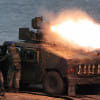
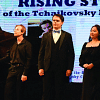

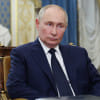
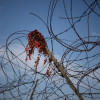


Comments